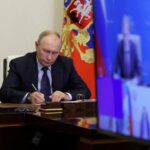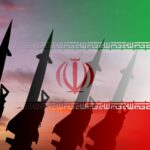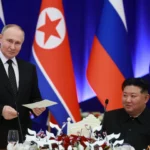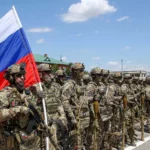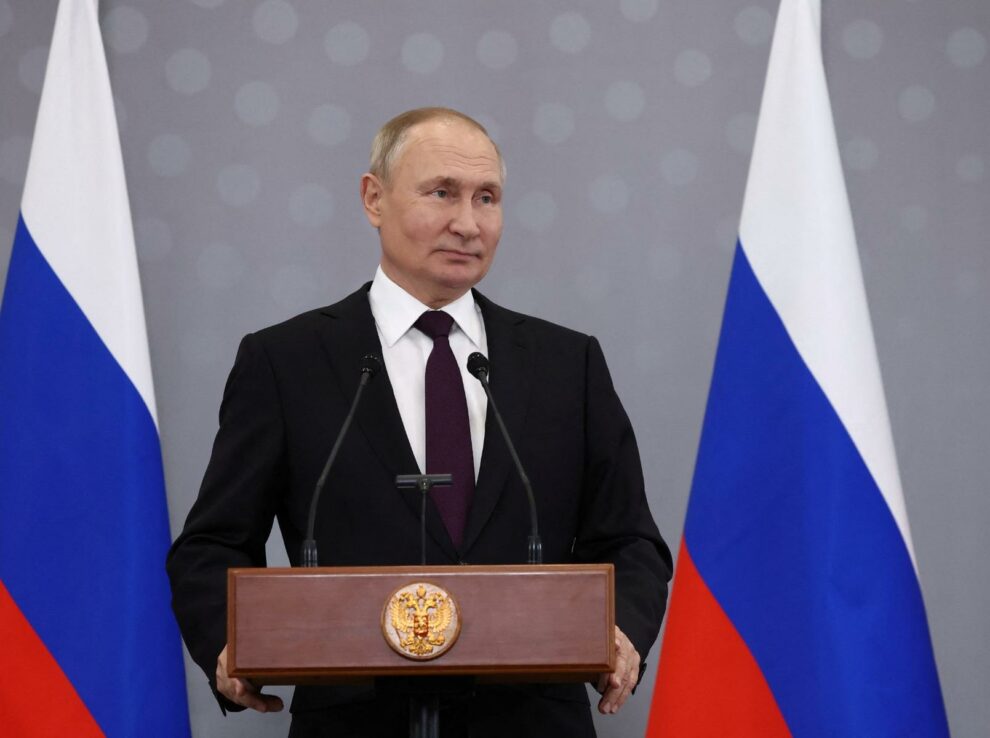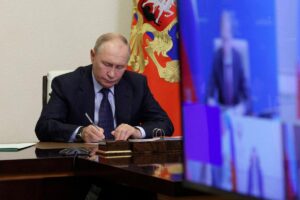Russian President Vladimir Putin held his annual phone-in with the public on Thursday, combined with his end-of-year press conference, in which he covered a host of issues including what Russia calls its “special military operation” in Ukraine.
Putin said Russia’s goals in the country, which he claimed include its “demilitarization” and “neutral status,” had “not changed.”
“Either reach an agreement or resolve it by force. This is what we will strive for,” he said, according to a Reuters translation.
The “Direct Line with Vladimir Putin” is a closely followed event as it gives Russian citizens a chance to speak directly with the president on a range of issues and sees them invariably airing their grievances as well as heaping praise on the president. The event is a carefully orchestrated and curated affair, with questions heavily vetted and any criticisms focusing on localized issues rather than Russia’s leadership.
The phone-in’s organizers said they received several million questions for the president and the televised event lasted over four hours.

Russian President Vladimir Putin at an annual televised phone-in with the country’s citizens at the Moscow’s World Trade Center studio on June 30, 2021.
Meanwhile, talks got underway among EU leaders in Brussels, at a summit in which Ukraine is high on the agenda.
All leaders bar Hungary’s Victor Orban — who has retained tacit sympathy for Putin through the war — are set to approve the formal start of talks over Ukraine joining the bloc. However, a decision must be taken unanimously.
Orban told reporters Thursday morning he continued to believe talks should not begin because Ukraine has not met all of the criteria set out by the European Union. Orban is also expected to block the approval of a 50 billion euro ($54 billion) funding package for Ukraine in the EU budget, instead favoring a short-term, smaller package.
Hungarian Prime Minister Viktor Orban (L) and Irish Prime Minister Leo Varadkar (R) attend European Union Leaders Summit in Brussels, Belgium on December 14, 2023.
Talks are reportedly underway between European Union leaders over the enlargement of the bloc, after Hungarian Prime Minister Viktor Orban indicated he would remain the lone holdout on approving the formal start of talks over Ukraine’s accession.
Ukraine is a key issue at the European Council summit, at which leaders are also set to debate the approval of a 50 billion euro ($54 billion) aid facility for Kyiv, with the issues of accession and budget approval to be debated in tandem.
“Enlargement is not a theoretical issue. Enlargement is a merit-based, legally-detailed process which has preconditions. We have set up seven preconditions, and even by the evaluation of the [European] Commission, three out of the seven [are] not fulfilled, so there is no reason to negotiate membership of Ukraine now, even not to negotiate,” Orban said Thursday morning as he arrived at the summit in Brussels.
He also said that it was “easy” to give Ukraine money “in the short term” because this money was already approved in the EU budget.
In the long term and regarding the larger amount, he said this should be provided outside of the EU budget.
“But we are not under [time pressure] because the bridging solution is already in the budget,” Orban said.
The start of accession talks for Ukraine is supported by all other EU leaders, but must be agreed unanimously. While the talks would likely take months or even years, Ukraine is strongly hoping it can begin the process and secure additional funding from the EU while the future of U.S. funding remains in doubt.
Source : CNBC

